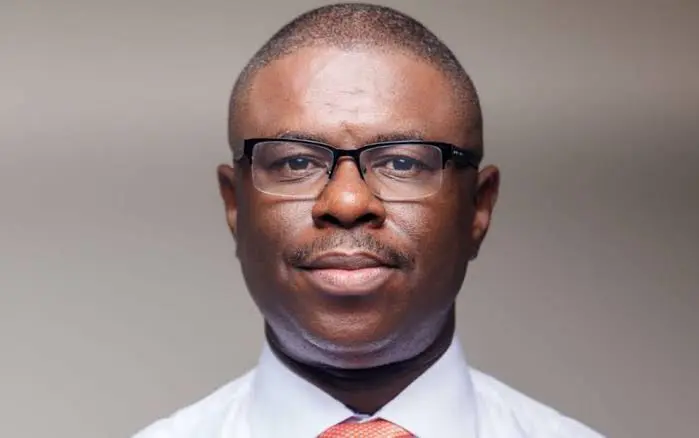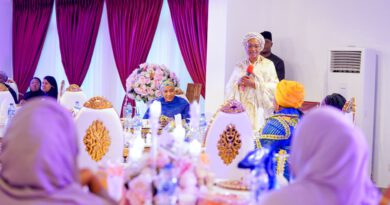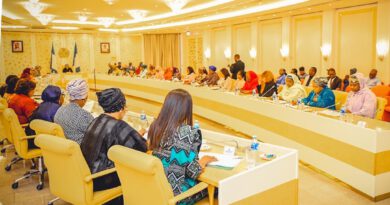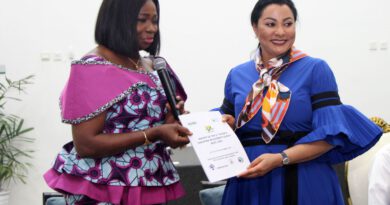Dakuku Peterside And Rational Analysis Of National Politics ( II)
“Every unguarded highway, every burnt out village, chips away at the argument that appointments alone satisfy regional expectations”, Dakuku Peterside, “2027: Battle for the Soul of the North”
The challenge before Nigeria as it approaches the 2027 elections is not merely about who wins or loses power; or who gets appointed into what office, it is about whether the nation can summon the maturity to engage its politics with reason rather than rancour. The emotionalism that has characterised national debates in recent years must give way to calm analysis and strategic thinking. In this respect, the rational tone adopted by Dakuku Peterside in his reflections on “the battle for the soul of the North” provides a useful model for how Nigerians ought to deliberate on their common destiny.
Politics in Nigeria has long been burdened by the weight of sectional interests and the corrosion of public morality. In place of serious dialogue, we often witness gladiatorial exchanges where facts and reason are sacrificed for partisan gain. Rational analysis requires that we look beyond immediate passions to consider the structural realities of our federation mainly the interplay between demography, economics, security, and governance that truly determines the country’s fate.
Peterside’s insight reminds us that politics, when stripped of hysteria, is essentially about the management of diversity. Nigeria’s unity will not be guaranteed by slogans but by continuous negotiations among its regions and peoples. Rational analysis thus demands that every political actor recognises the validity of other perspectives. The North must appreciate the fears of the South, just as the South must acknowledge the North’s historical burdens and contributions.
The 2027 elections will, in this sense, become a referendum on our collective capacity to reason. They will test whether the electorate can evaluate candidates on programmes and competence rather than ethnic geography. Rational analysis must, therefore, guide the political class toward issue-based politics that focuses on security, poverty, education, and industrialisation rather than zoning formulas and antagonistic claims and counter claims.
It is time we admitted that the old formula of rotating power has served its symbolic purpose and that governance now demands technical knowledge, managerial ability, and moral courage. Nigeria’s next leaders must emerge through a process that prioritises merit and vision, not manipulation or sentiment. In this respect, the conversation that Peterside initiated should be expanded into a national debate on values: what kind of leadership will sustain the republic and what institutions must be built to secure that leadership?
Rational analysis also compels us to recognise that the challenges facing the North in the form of insecurity, illiteracy, unemployment, and social decay, are not isolated problems. They are national crises that require a coordinated federal response. Development must no longer be interpreted through regional lenses or the mere appointment of individuals from different sections. If the North remains impoverished, the South cannot prosper. The prosperity of Lagos and Port Harcourt is ultimately tied to the stability of far off Borno and Zamfara. It is this interconnectedness that a rational political economy must constantly emphasise.
Similarly, the South must be seen not as a competitor to the North but as an indispensable partner in national renewal. The ingenuity of the South West, the enterprise of the South East, and the resource wealth of the Niger Delta must be harnessed alongside the demographic energy and agricultural and minerals potential of the North to create a balanced national economy. Peterside’s reasoning points exactly to this — that the future of Nigeria lies in the symbiosis of its parts, not their dichotomization.
Another dimension that demands rational appraisal is the role of political parties. For decades, our parties have functioned as electoral machines devoid of ideology or civic mission. They have mirrored the divisions of the society rather than healing them. A rational restructuring of politics would require parties to evolve as instruments of national integration with genuine internal democracy, defined social philosophies, and programmes that cut across ethnic boundaries. Parties must become platforms for the contest of ideas, not vehicles for the distribution of spoils or appointments only.
The coming political cycle should thus be seen as an opportunity to renew Nigeria’s democratic culture. Political education, especially among the youth, must be intensified so that citizens understand governance as a continuum rather than an event. Rational analysis would help young Nigerians see that true change is not achieved by anger but by institutional reform, civic discipline, and sustained participation in the democratic process.
Moreover, the state itself must be re-examined. A rational view of governance would focus on the strengthening of institutions rather than the glorification of individuals as we are doing today.
It is institutions that ensure accountability, transparency, and policy continuity. The civil service, judiciary, legislature, and security agencies must be re-oriented to serve the national interest rather than partisan loyalties. This is where political rationality meets administrative reform by creating a state that functions on predictable rules rather than improvisation and glorification of the individual.
Equally, our media must assume responsibility for fostering reasoned debate. The sensationalism that dominates public discourse distorts perceptions and fuels mutual suspicion. A rational media culture would prioritise analysis over outrage, education over propaganda, and truth over expediency. The voice of reason must once again become fashionable in our national life.
As we approach 2027, it will be necessary to redefine patriotism. True patriotism does not reside in emotional slogans but in the willingness to confront uncomfortable facts.
A rational patriot is one who can critique his region while defending the unity of the nation; who can praise others without fear of being misunderstood; who can tell the truth even when it is unpopular. Dakuku Peterside exemplified this courage by writing with fairness about the North, thereby setting a standard for others to emulate. The lesson from his approach is that Nigeria’s salvation will not come from any single ethnic group or faith, but from the collective rationality of its citizens.
Emotional politics divides; rational politics unites. Emotionalism blinds us to opportunities; rationality opens the path to reform. What Nigeria needs now is a political renaissance founded on reason, tolerance, and shared purpose. If 2023 was an election of passion, let 2027 be the election of reason. Let Nigerians of all backgrounds examine not where candidates come from but what ideas they bring. Let the debates focus on energy policy, food security, job creation, and the digital economy. Let the conversation revolve around how to rebuild trust between the state and the citizens. This is what rational analysis demands, a politics that is purposeful, informed, and nationally oriented.
The challenge before Nigeria’s thinkers, journalists, and politicians is to sustain the intellectual discipline that Peterside has demonstrated. The rational analysis of national politics must become a civic duty. It should guide policy formulation, electoral behaviour, and inter-regional relations. Only then can Nigeria move from the politics of recrimination and bitterness to the politics of reconstruction and empathy. The times call for sobriety, not hysteria; for wisdom, not noise. The rational mind sees beyond today’s headlines into tomorrow’s history. If we can cultivate such minds across our regions as Peterside has done, then the dream of a united, prosperous, and just Nigeria will cease to be a blurry illusion.




